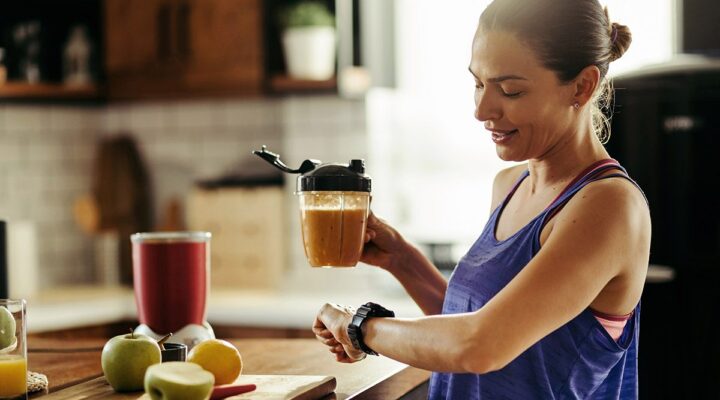Will Meat Free Alternatives Make Your Diet Healthier, or Is It Better To Stick With the Veg?

Sales of plant-based meat and dairy replacements have soared in recent years, with over £1 billion pounds a year spent on vegetarian and plant-based food every year here in the UK. With this level of spend, you can be sure it’s not just vegans and vegetarians eating these products.
Whatever you label yourself; a meat reducer, a flexitarian, or maybe just someone who’s joined in with Meat-less Monday or Veganuary, it’s clear plant-based replacements for meat and dairy are becoming commonplace on all our plates.
Going Vegan For Your Health
Not every one of these switches is for ethical reasons either. A 2018 survey found that almost half of those choosing to forgo meat do so for a healthier lifestyle.
And there are health benefits to be found in a whole food plant-based diet. For a start, it has less saturated fat, which can lower cholesterol levels and help to protect against cardiovascular disease. The higher number of vegetables eaten in a plant-based diet increases fibre intake which can improve gut health and also increase satiety, making you feel fuller for longer. Then there’s the extra vitamins and minerals that vegetarians and vegans have been shown to consume.
The Meat-Free Alternatives Conundrum
But where do meat and dairy replacements feature in all this? They look, feel, and taste like meat but are actually made of plants. Is their nutritional contribution closer to the meat they mimic, or to the plant-based diet and all its benefits? A quick comparison of meat, fake meat, and vegetable burgers shows the meat alternative is much closer to meat than its whole vegetable counterpart.

The amount of protein, fat, and fibre in the meat alternative is comparable to the meat burger. Whereas the vegetable burger is more aligned to the whole food plant-based diet and all its health benefits described above. It’s lower in fat, with more carbohydrates and fibre.
The higher protein found in the meat alternatives could be useful contributors of protein in a vegan or vegetarian diet. Meat and dairy alternatives can also be fortified with vitamins and minerals, such as iodine or B12, that may be lower in a whole food plant-based diet.
“Meat-free alternatives have become commonplace on supermarket shelves, in line with the trend for people reducing consumption of eating animal products,” says Dr. Adam Collins, Principal Teaching Fellow, Nutrition at University of Surrey. “But what impact does switching to these meat-free alternatives have compared to the original animal product? Is it a given this will make your diet healthier?”
Searching For Answers
Plant-based meat and dairy replacements are on our supermarket shelves and forming part of our meals, but how frequently are they consumed? The part they play in our diet and the nutritional impact of this isn’t clear.
As part of my degree in Nutrition and Dietetics at the University of Surrey I am undertaking some research on the dietary role of plant-based meat and dairy alternatives. I would be very grateful if you could complete this short questionnaire on your diet in regard to meat, fish and dairy, and their plant-based alternatives.


















